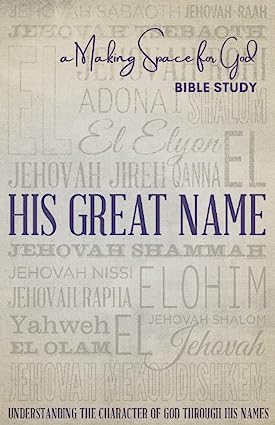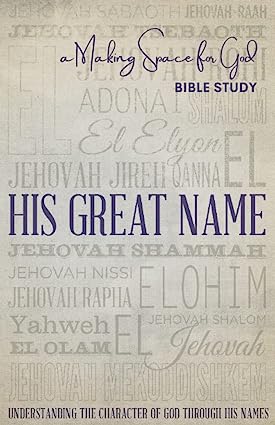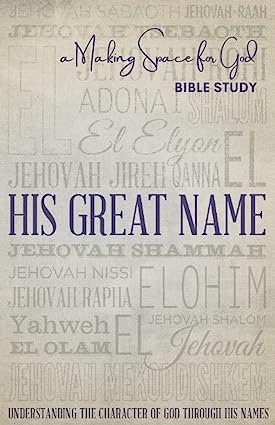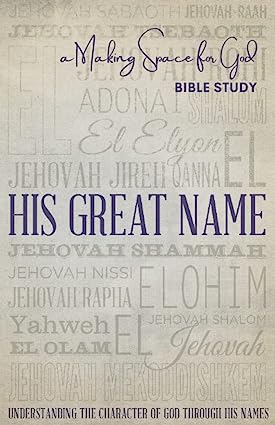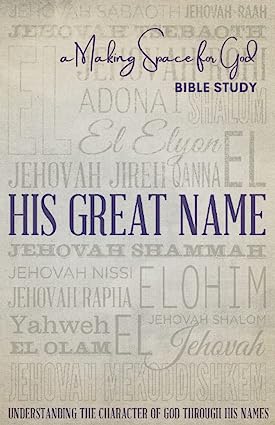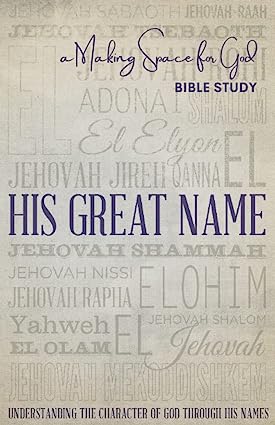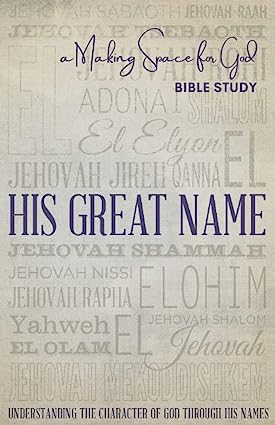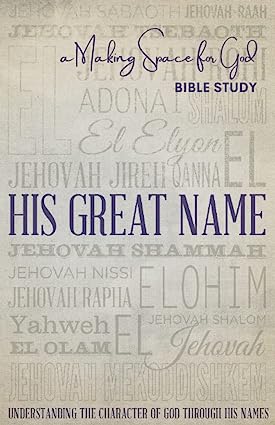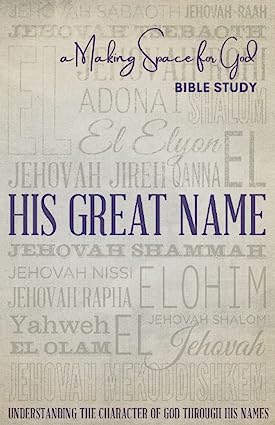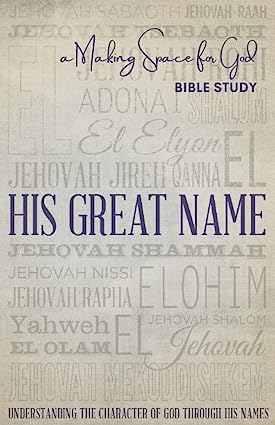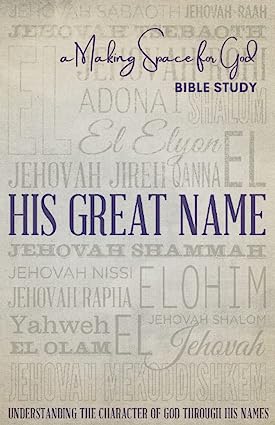In her book, His Great Name, Joanne Ellison takes us on an exploration of the different names that the Hebrew Scriptures use for “God.” These various names convey a sacred understanding of the different ways in which God interacts with and relates to his people. This Epiphany study is six weeks.
(Epiphany 2018)
Names of God: Hallowed be Thy Name
On a deeper level, however, the name itself contains a part of the substance of the person it signifies. The invocation of the name can make present the person who is called.
Names of God: Elohim (Our Creator)
The first name of God that we encounter in Scripture is “Elohim” – “In the Beginning, Elohim created . . .” Genesis 1:1a.
Names of God: Jehovah (Our Righteous Judge)
God’s name “Jehovah/Yahweh” discloses that God isn’t specific to a place or a function, and thereby isn’t limited to that place or function, rather God simply is. God is self-existent and thereby is the source of existence.
Names of God: El Shaddai (Our Sufficiency)
In El Shaddai, we have a joining together of an understanding of God, not only as our Sufficiency, but also as Fertility and Destruction.
Names of God: Adonai (Our Master)
The name “adonai” derives from the Hebrew word “adon” meaning “lord” or “master.” The word Adonai is the superlative or emphatic form of adon, and is used in the Hebrew Scriptures to refer exclusively to the Divine.
Names of God: Jehovah-jireh (Our Provider)
The name “Jehovah-jireh” is only used once and arises from the story of the Sacrifice of Isaac in Genesis 22.
Names of God: Jehovah Nissi (Our Banner) and Jehovah Rophe (Our Healer)
As you work through these names and read the stories associated with each name, think about a time where and when God personally intervened on your behalf. And, like Abraham and Moses, find a name for that place and event.
Names of God: Jehovah-shalom (God of Peace)
The God of Peace, in the first instance, doesn’t bring peace among the inhabitants of this world, rather, the Peace is between God and his Creation so that, like Gideon, there is no longer any fear.
Names of God: Jehovah-tseboath (God of War)
Read is a spiritual manner (2 Cor. 3:6), these prophetic pronouncements concerning Jehovah-tseboath are not judgments upon people but against the adversarial hosts of darkness and evil (Eph. 6:12), the destruction of which brings about the restoration of the image of God within us all.
Names of God: El Elyon (Our God Most High)
he only place in Scripture that “El Elyon” is mentioned is the story of Melchizedek, where he is the priest of this name of God.
Names of God: Jehovah Rohi (Our Shepherd)
hroughout the Hebrew Scriptures, and specifically in the Psalms and the Prophets, God is seen as the shepherd of his people. It is this name of God, that Jesus that specifically appropriates to himself.

